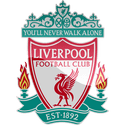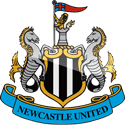
Liverpool

Newcastle United
As two of the most storied and successful clubs in English football, it’s no surprise that Liverpool and Newcastle United have a long-standing rivalry. There’s always a lot at stake when these northern Premier League giants face off.
The two teams played their first match against one another in 1893, with Liverpool achieving a 5-1 victory. Ever since that first match, Liverpool have retained a clear competitive advantage over Newcastle in the head-to-head. However, games are always hotly-contested and extremely well-attended.
Securing tickets for Liverpool vs Newcastle games can be tricky. However, Ticket Compare offers the chance to obtain tickets for your chosen match from our vetted retailers. Find cheap Liverpool vs Newcastle tickets using the comparison table below.
Newcastle United vs Liverpool Tickets
{{translatedStrings.no_events}}
{{{translatedStrings.reset_search}}}

Liverpool

Newcastle United
Liverpool
Few football clubs can match Liverpool’s history and success. The club has been a powerhouse in English and European football for decades, winning numerous prestigious trophies.
The club was founded in 1892 and quickly became one of the most successful teams in England. The club has won the English league title 19 times, the FA Cup 8 times, and the UEFA Champions League 6 times. Liverpool is also one of only five clubs to have won all three of these major competitions.
The club’s success is built on a strong foundation of passionate supporters. The “ Anfield roar” is famous around the world and synonymous with Liverpool FC. This passion drives the players to perform at their best and brings an extra edge to matches against rivals.
Anfield
Anfield Stadium has been the home of Liverpool Football Club since 1892 and is one of the most iconic football stadiums in the world. The stadium has a rich history and an electric atmosphere that is unrivalled anywhere else.
Anfield was originally built in 1884 as a cricket ground before being converted into a football stadium in 1892. The stadium has undergone numerous renovations over the years, most notably in 1992 when the main stand was rebuilt. Further expansions to the stadium capacity began in 2015, with final work expected to be completed in 2023.
Despite its long history, Anfield has been at the forefront of modern football stadiums in recent years with the introduction of state-of-the-art facilities such as new improvements to the main stand and pitch side LED advertising boards.
The atmosphere at Anfield is truly unique and is often credited as being one of the main reasons why Liverpool are so successful at home. A huge contributing factor to the atmosphere is the fan’s rendition of “You’ll Never Walk Alone” which is famously sung before matches start, often described as spine-tingling.
Newcastle
Newcastle United FC is one of England's most historic and successful football clubs.
The club was founded in 1892 and has since won four League Championships, six FA Cups and one European trophy. Newcastle United is also one of the founding members of the Premier League, England's top flight football division.
The club has a rich history of success, dating back to its first major trophy win in 1905. Newcastle United has since gone on to win some of football's most prestigious trophies, including the league title, the FA Cup and the UEFA Intertoto Cup.
The Magpies have also produced some of England's greatest players, including Alan Shearer, Jackie Milburn, and Peter Beardsley. Newcastle United is truly a club with a proud history and tradition of success.
St James’ Park
In the heart of Newcastle lies St James’ Park, one of England’s most iconic football stadiums. The home of Newcastle United FC, St James’ Park has been at the centre of the city’s life for over 140 years.
The stadium was built on land which belonged to the hospital and chapel of St. James’ in the early 19th Century, with the first football match being held on the site in 1880, twelve years before Newcastle United was founded when the two East End and West End clubs merged in 1892.
Since then, the stadium has undergone several renovations and expansions. The most recent redevelopment took place in 2000, when the capacity was increased to 52,405.
